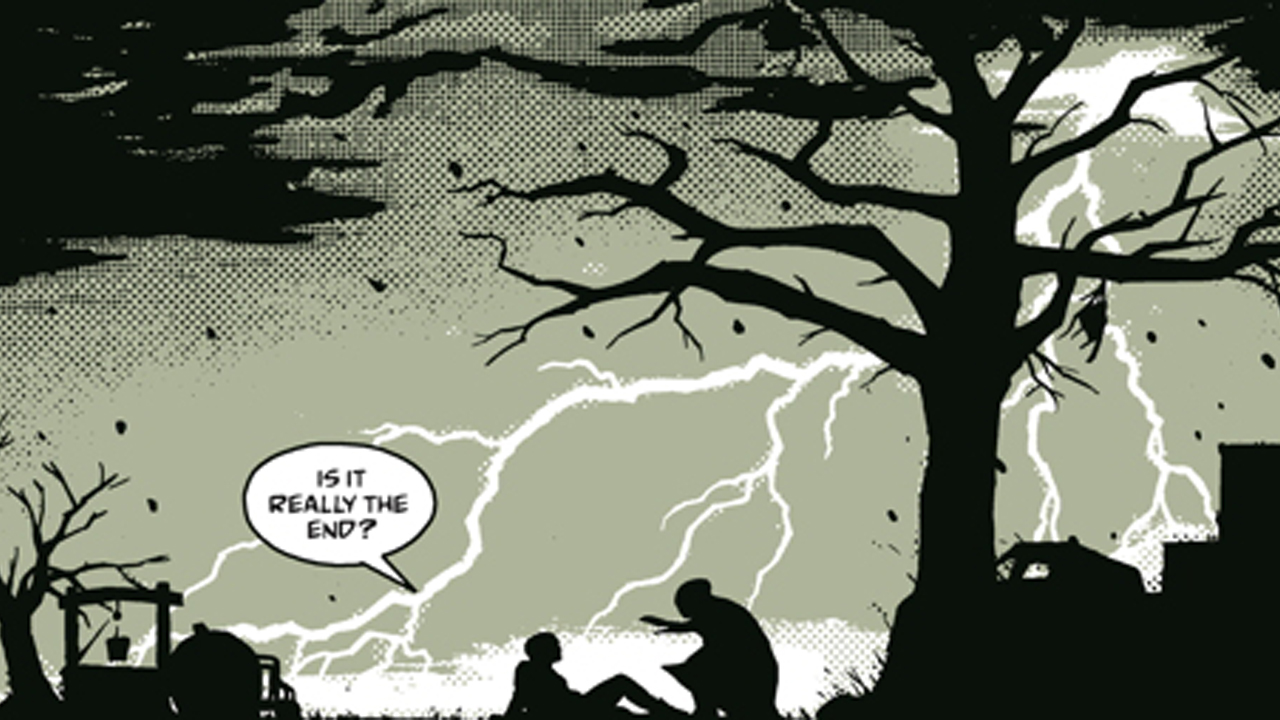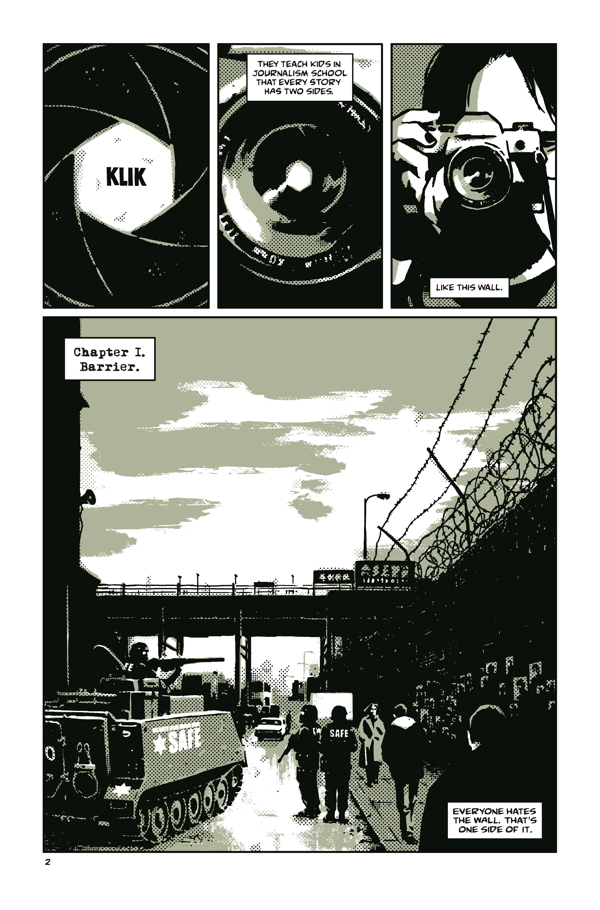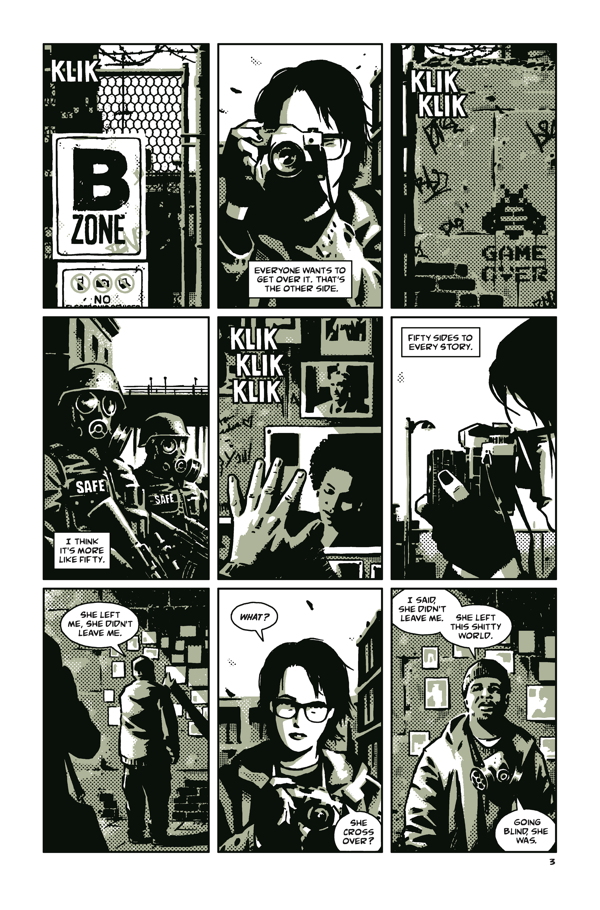Best Shots advance review: The Seeds is an end of the world story not about the end of the world
A review of all four issues of Ann Nocenti and David Aja's The Seeds

The world is dying so what are you going to do about it?
Written by Ann Nocenti
Art and Lettering by David Aja
Published by Dark Horse Comics / Berger Books
'Rama Rating: 8 out of 10
With The Seeds, Ann Nocenti and David Aja present an excellent answer that's basically to be good to each other no matter how bad things may get. As that may be the only answer to what we can do, we better get used to that idea. In their near-future story, the bees are disappearing, which is an ecological catastrophe that we need to contend with in real life as scientists believe that the declining bee population across the globe is due to rising temperatures and changing climates. And it may seem like that's one nuisance that's gone from our lives but bees are extremely important to the pollination of plants so their disappearance has graver consequences than just us living in a bee-sting-free world. And even the aliens are getting ready to leave in this story, their job on Earth coming to an end.

Oh yeah, that's right, in this book aliens are walking among us, collecting the "seeds" of mankind before the world collapses in on itself. Nocenti and Aja speculate how the world may end in this book, giving us a warning of those last days from a personal and cosmological perspective. In addition to the bees and the aliens, there's also a wall built at the edge of a city, separating two ideologically different populations from being able to even mingle with each other, a wall which sounds all too familiar from the history of both the 20th and 21st centuries. There are several world-ending scenarios to recognize in The Seeds which makes this story all the scarier as we try to contextualize them with the world around us.
In their characters, Nocenti and Aja shape their story around innocents, cynics, romantics, workers, and madmen, all dealing with collapsing physical, emotional, ecological, and political structures. Astra, a journalist with principles, wants to find stories that can at least explain the world if they couldn't change it. She looks at a world that splits a city between those who denounce technology and those who can't even look away from their phones and she recognizes the divisions that are tearing us apart. But her editor is a bit more pragmatic and needs stories that are flashy and drive revenue. So when Astra stumbles on a story about a woman, Lola, in love with an alien named Race, she struggles with the responsibility of reporting the story or letting a human and an alien live their lives. Lola and Race, a woman and a worker from another world, have to figure out what their future as Race's boss is starting to lose it and sees the Earth as his own little river trip into a heart of darkness.

All while the world is ending.
Contrary to what it sounds like, this is not an end of the world story. This cataclysmic event is the backdrop for this story focused on relationships and who owes who what to this world? Nocenti and Aja create this window into these people's lives that place us, the audience, into the role of a voyeuristic spy. The stark portrayal of these characters and their situations offer a chilly view of the world, a bleak vision of a future where everyone and everything is focused solely on themselves and their narrow experiences of the world. Aja's nine-panel grid pages frame our access into this story, making it like we are peering into these lives like a Peeping Tom. Our role as the reader becomes like Astra's as we're taking in a lot of information, have to decipher its meaning, and figure out what to do with it.
Nocenti uses that visual structure to add to the discomfort of the environment. The Seeds is a tough story, one of ugly behavior and questionable actions by nearly everyone. And yet, this is the world; it's messy, confusing, and can't be easily comprehended. Nocenti and Aja take these messes and bewilderments and use them to challenge their audience. They make it so that we are as messed up by everything that is happening as Astra and Lola are. We have to see this world through their eyes and by extension, through Aja's panels which only give us a limited view. There is so much happening just outside of the panel that it always feels like we're seeing just a portion of this story. There's a big picture that is as hidden to us as it is to Astra and Local. Nocenti and Aja want us to experience the same events and emotions as these two women: the loves, the horrors, and everything in between.
Get the best comic news, insights, opinions, analysis and more!

The threat of the bees, the aliens, the world, and reality intruding on these characters' dreams and ideals act as external manifestations of their inner turmoil that they face. Nocenti and Aja create this story where the external conflicts are reflecting and commenting on the internal ones. These characters are facing the literal end of the world but their actions and choices could bring their own personal realities crashing down around them. The bees disappearing and leaving show us one path that these characters could follow out of their troubles. The wall dividing two opposing ideologies shows us another.
Nocenti and Aja are not out to make things easy for anyone. There is the surface-level storytelling about bees and aliens that is kind of confusing. Looking at The Seeds and trying to follow how Plot Point A leads into Plot Points B through F reveals a messy structure that feels jumbled and probably intentionally unclear. Instead of trying to string together the linear events, the creators have made this a story that folds back upon itself to reveal a larger structure of themes and ideas that informs the story's past and its future.
The Seeds TPB goes on sale digitally and in comic stores on December 23, and hitting bookstores on January 12, 2021.
Read the unique origin of The Seeds in an advance look at the book's afterword by David Aja.
Scott is a regular contributor for Panel Patter, GamesRadar, and Newsarama, covering comic books since 2002. He specialises in comic book reviews, and also runs the blog I Lost It At the Comic Shop.


